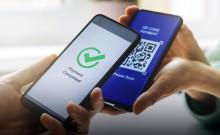Google is preparing to release Android Oreo Go it had promised at its Google I/O event this May. The lightweight version of the search giant's latest operating system will be officially made available to developers and manufacturers as a part of the Android 8.1 Oreo on Wednesday, December 6.
Android Oreo Go is a build of Android Oreo OS specially developed for cheap and low-end smartphones that have only 512MB or 1GB of memory. It will come as a pleasant surprice to the entry-level handset owners as they can soon taste Android Oreo without wasting their phone storage space much.
Also read: Android 8.0 Oreo update schedule for Asus Zenfone 3
Google has optimised the new version and enhanced preinstalled Google apps to take up 50 percent less space, making sure that low-end smartphone users get more space for music, apps, photos and other activities. It has also enhanced the firmware for speed and reliability on entry-level devices, making apps on handsets running Android Oreo Go faster by 15 percent.

The search giant has said in a blog post that "devices running Android Oreo (Go edition) also come with Google's data saver features turned on by default," which means "Data Saver in Chrome saves the average user more than 600MB of data per year."
Android Oreo Go will bring several Google apps, including Google Go, Google Assistant Go, YouTube Go, Google Maps Go, Gmail Go, Gboard, Google Play, Chrome, and the new Files Go app by Google with simpler interfaces and toned down version like low resolution videos on YouTube. It also allows users to download content when there is Wi-Fi and view it later.
But when can entry-level smartphone users expect rollout of Android Oreo Go?
The lightweight version of Android Oreo will be first made available to developers and manufacturers. There is no word on when it will come to eligible handsets (public release) but it should happen soon, perhaps in the next few months.
Google has said in its blog post that its "partners will soon be able to ship this new release on their entry-level devices around the world. We can't wait for our partners' devices to hit shelves in the coming months."









